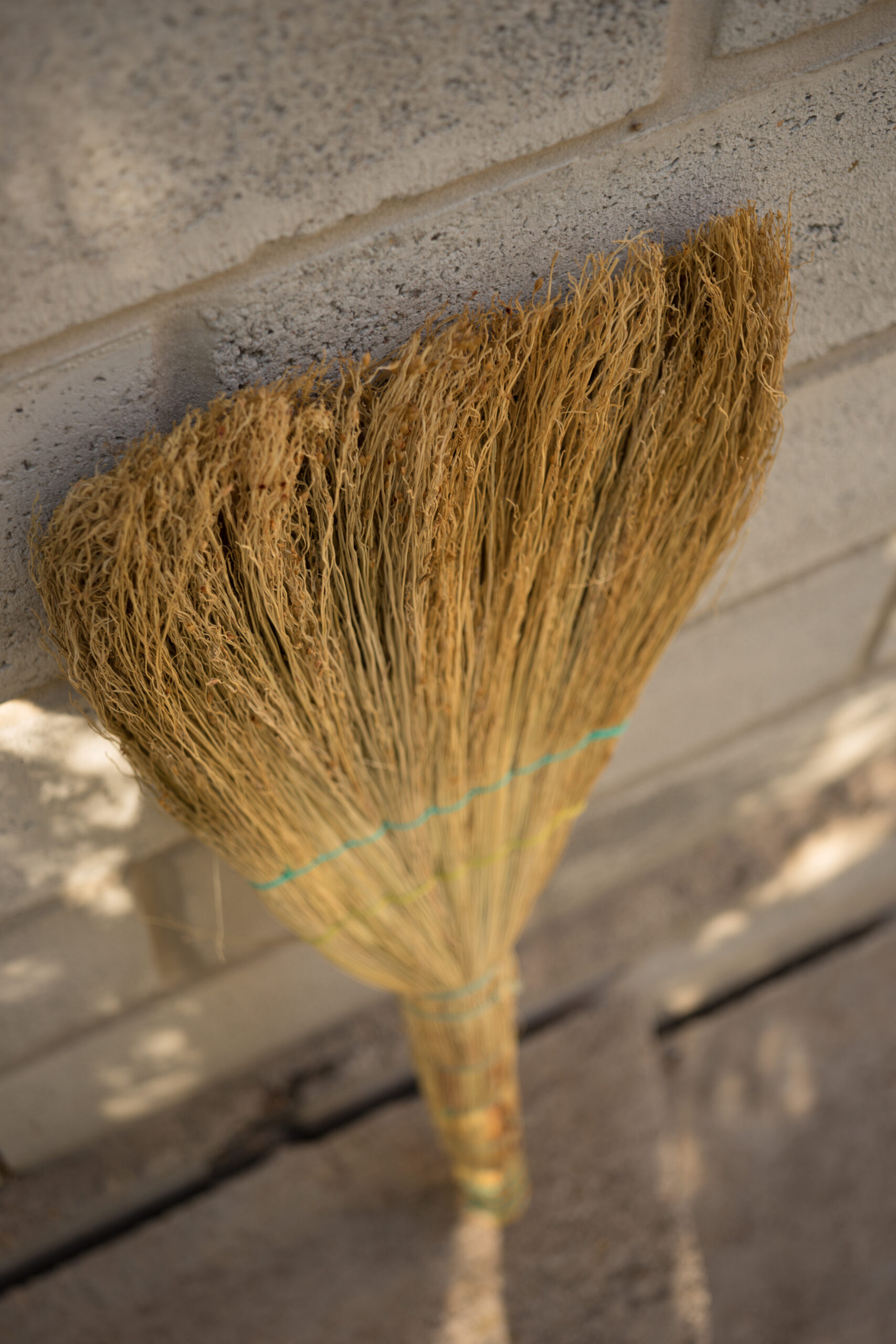Superstitions have shaped cultures across the globe, often passed down through generations. These beliefs might seem unusual or mysterious, yet they reveal fascinating insights into the fears and hopes of different societies. They reflect the deep connection between human behavior and the unseen forces we believe guide our lives. Let’s explore some uncommon superstitions from various cultures that continue to influence everyday practices.
Spilling Salt Brings Bad Luck Unless You Throw It Over Your Left Shoulder (Western Europe)

Spilling salt has long been considered a sign of bad luck in Western Europe. This belief dates back to ancient times when salt was a precious commodity. People believed that spilling it could anger the spirits and invite misfortune. To counteract this bad luck, the common remedy was to throw a pinch of the spilled salt over your left shoulder. This act was thought to blind or ward off any lurking evil spirits. The left shoulder was specifically chosen because it was believed that’s where the devil would be.
Passing a Baby Through a Window Will Bring Bad Luck (United States)

In some parts of the United States, there is a superstition that passing a baby through a window brings bad luck. This belief likely stems from the idea that windows act as portals between the inside world and outside forces. Passing a baby through one could confuse these spirits or invite negative energy into the home. To avoid this, parents are advised to always use doors when moving their infants between rooms or outside. This simple act is thought to protect the child from any unseen harm that could result from passing through a window.
Avoiding Sleeping with Feet Facing the Door to Prevent Death (China)

In Chinese culture, it’s believed that sleeping with your feet facing the door invites death. This superstition is rooted in the idea that the door is a pathway for spirits, and having your feet pointed towards it symbolizes readiness for death. In traditional Chinese funerals, the deceased is often placed with their feet towards the door as a way of guiding the spirit out. To avoid this bad omen, many people in China arrange their beds so that their feet don’t face the door. This practice is thought to promote health and longevity by keeping negative energy away.
Placing a Broom Upside Down to Get Rid of Unwanted Guests (Romania)

In Romania, placing a broom upside down behind a door is believed to get rid of unwanted guests. This superstition is based on the belief that the broom, an everyday household object, holds the power to sweep away bad energy. When placed upside down, it’s thought to disrupt the comfort of any unwelcome visitors, causing them to leave sooner than planned. People often use this trick during gatherings or when someone overstays their welcome. It’s a simple yet effective way to subtly encourage guests to depart without confrontation.
Birds Flying Into Your Home is an Omen of Death (Various Cultures)

Across various cultures, a bird flying into your home is considered a bad omen, often signaling impending death. Birds have long been seen as messengers between the earthly world and the spiritual realm. When one enters your home, it’s believed to carry a message from the beyond, often a warning of a death in the family. The specific type of bird and how it enters can further influence the superstition. For example, in some traditions, a black bird or crow is particularly feared. People who follow this belief often take precautions to prevent birds from entering their homes.
Walking Under a Ladder is Bad Luck (Western Europe)

The superstition that walking under a ladder brings bad luck is widespread in Western Europe. This belief originates from the triangular shape formed by a ladder leaning against a wall, which was thought to symbolize the Holy Trinity. Walking through this triangle was considered a violation of this sacred symbol, inviting misfortune. Additionally, ladders were often associated with execution, as they were used to climb to the gallows. To avoid this bad luck, many people in Western Europe will go out of their way to walk around a ladder rather than underneath it.
Placing a St. Christopher Medal in a Car for Safe Travels (Global)

Many people around the world place a St. Christopher medal in their car to ensure safe travels. St. Christopher is the patron saint of travelers, and his medal is believed to offer protection during journeys. This practice is common among Christians who seek divine guidance and safety on the road. The medal is often hung from the rearview mirror or placed in the glove compartment. By keeping this symbol close, travelers believe they will be shielded from accidents and other dangers. It’s a simple yet powerful way to invoke a sense of security while driving.
Avoiding Whistling at Night to Prevent Summoning Evil Spirits (Japan)

In Japan, it’s believed that whistling at night can summon evil spirits. This superstition is based on the idea that whistling, especially after dark, attracts the attention of ghosts, demons, or even snakes. These malevolent beings are thought to be drawn to the sound, mistaking it for a call or invitation. As a result, many people in Japan avoid whistling after sunset to prevent these spirits from entering their homes. This simple precaution is taken seriously, particularly in rural areas where traditional beliefs are still strong.
Not Cutting Hair on Tuesdays to Avoid Misfortune (India)

In India, many people believe that cutting hair on a Tuesday brings misfortune. This superstition is rooted in the cultural significance of certain days of the week. Tuesday, associated with the planet Mars, is considered a day of high energy and potential conflict. Cutting hair, which is seen as a symbolic act of reducing one’s strength, is thought to invite negative consequences. Therefore, many avoid visiting the barber or cutting their hair at home on this day. It’s a small precaution taken to avoid inviting unnecessary trouble into one’s life.
Leaving a Mirror Facing the Bed Invites Bad Dreams (Mexico)

In Mexico, it is thought that leaving a mirror facing the bed can invite bad dreams. Mirrors are believed to act as portals to the spiritual world, reflecting not only physical images but also energies. When a mirror faces the bed, it’s thought to disturb the sleeper by reflecting negative energy or spirits. This belief encourages people to either cover the mirror at night or position it away from the bed. It’s a small, mindful practice to ensure a peaceful night’s rest free from nightmares.
Eating Grapes on New Year’s Eve Brings Prosperity (Spain)

In Spain, a popular New Year’s Eve tradition involves eating 12 grapes at the stroke of midnight. Each grape represents a month of the coming year, and eating them in quick succession is believed to bring prosperity and good fortune. The origins of this custom date back to the early 20th century, when grape growers in Spain promoted the practice to sell excess grapes. It has since become a widely observed tradition, with people gathering to enjoy this ritual as they ring in the new year with hope and optimism.
Avoiding Gifts of Sharp Objects as They Cut Relationships (Global)

Giving sharp objects as gifts, such as knives or scissors, is generally avoided across many cultures due to the belief that they can cut the relationship between the giver and receiver. This superstition suggests that the sharpness of the object will sever the bond of friendship or love. To counteract this, some people will exchange a small coin with the gift. The coin symbolizes a token payment, which turns the gift into a transaction rather than a symbolic exchange, thereby protecting the relationship from harm.
Crossing Your Eyes Will Cause Them to Stay That Way (United States)

In the United States, a common superstition warns that crossing your eyes can cause them to stay that way permanently. This belief is often told to children as a playful yet cautionary tale. The idea is to discourage kids from making faces or crossing their eyes for fun. While there’s no scientific basis for this superstition, it persists as a way to gently remind children to be mindful of their behavior. It’s one of those harmless beliefs that has been passed down through generations.
Breaking a Plate During a Celebration Brings Good Luck (Greece)

In Greece, breaking a plate during a celebration is considered a way to bring good luck. This practice, often seen at weddings and other joyous events, symbolizes the shattering of misfortune and the welcoming of new beginnings. The loud sound of the breaking plate is thought to scare away evil spirits, ensuring happiness and prosperity. Although the custom has become less common, it remains a symbol of exuberance and positive energy in Greek culture. The act reflects the belief that through destruction comes renewal and good fortune.
Seeing a Black Cat is a Sign of Good Luck (Japan)

In Japan, encountering a black cat is often seen as a sign of good luck, contrary to the belief in many Western cultures. Black cats are associated with protection and prosperity, especially for single women. In Japanese folklore, these cats are believed to ward off evil spirits and bring blessings to their owners. They are also considered symbols of success in business and financial matters. This positive view of black cats contrasts with the negative superstitions found elsewhere, showcasing the cultural differences in how animals are perceived.
Carrying an Acorn to Stay Forever Young (England)

In England, carrying an acorn is believed to help one stay forever young. This superstition dates back to ancient times when the oak tree, from which acorns come, was revered for its strength and longevity. The acorn, as a seed of the oak, symbolizes vitality and eternal youth. People who carry an acorn with them are thought to absorb its life-preserving qualities. This simple act of carrying a small acorn is seen as a way to ensure continued health and youthfulness, reflecting the deep connection between nature and well-being.
Putting Your Purse on the Floor Leads to Financial Loss (Brazil)

In Brazil, placing your purse on the floor is believed to cause financial loss. This superstition stems from the idea that money, like a purse, should be treated with care and respect. Allowing it to rest on the floor is seen as a sign of disregard, inviting financial misfortune. People who follow this belief make a conscious effort to keep their purse elevated, either on a table or a hook. It’s a small practice meant to symbolize financial stability and prosperity. Many believe that by keeping your purse off the ground, you protect your wealth from slipping away.
Leaving a Hat on a Bed Brings Misfortune (United States)

In the United States, it is widely believed that leaving a hat on a bed invites misfortune. This superstition may have roots in old funeral customs where a hat, placed on the bed of the deceased, was associated with death. Over time, the act of placing a hat on a bed became linked with bad luck, possibly inviting sickness or other misfortunes. To avoid this, many people make sure to place hats on hooks or shelves instead. It’s a simple precaution meant to keep bad luck at bay. The belief persists, especially among those who are superstitious about household practices.
Avoiding Trimming Nails at Night to Prevent Death (South Korea)

In South Korea, trimming nails at night is believed to bring about death or misfortune. This superstition is rooted in the idea that cutting nails after dark can attract evil spirits. These spirits, mistaking the nail clippings for food, might come closer to harm the person. To prevent this, many South Koreans avoid trimming their nails once the sun goes down. This practice is a way to protect oneself from potential danger or bad luck. It’s a tradition that combines practicality with a deep-seated belief in the supernatural.
Sweeping Over Someone’s Feet Means They’ll Never Get Married (Italy)

In Italy, sweeping over someone’s feet is said to doom them to a life of spinsterhood or bachelorhood. This superstition is based on the idea that sweeping symbolizes clearing away prospects, including romantic ones. If someone’s feet are swept over, it’s believed that they will never walk down the aisle. To counteract this, some people might perform a quick ritual or ask the person to spit on the broom. This act is thought to reverse the bad luck and restore the person’s chance at marriage. It’s a small but significant superstition that reflects the cultural value placed on marriage and family.
Eating a Double-Yolked Egg is a Sign of Twins (Norway)

In Norway, finding a double-yolked egg is considered a sign that someone close to you will have twins. This superstition likely comes from the rare occurrence of double-yolked eggs, which are seen as a natural symbol of duality and fertility. When such an egg is found, it’s thought to be a good omen, especially for those hoping to expand their family. People who encounter a double-yolked egg often share the news with excitement. It’s a belief that adds a touch of wonder to the everyday act of cooking and eating.
Avoiding Counting Stars to Prevent Bad Luck (Japan)

In Japan, it is believed that counting stars can bring bad luck. This superstition is rooted in the idea that trying to number the infinite can lead to misfortune. Counting stars is thought to challenge the natural order, inviting negative consequences. Some also believe that counting stars could shorten your lifespan or attract unwanted attention from spirits. To avoid this bad luck, people in Japan often enjoy stargazing without attempting to count the stars. It’s a simple way to appreciate the beauty of the night sky while respecting cultural beliefs.
This article originally appeared on Rarest.org.
More from Rarest.org
14 Overlooked Scientists with Groundbreaking Discoveries

Throughout history, scientific advancements have often been attributed to a select few, overshadowing many other brilliant minds whose contributions have been just as groundbreaking. Read More.
20 Vibrant Tropical Plants That Bring the Rainforest Indoors

Transforming your home into a lush, vibrant oasis is easier than you might think with the right selection of tropical plants. Read More.
15 Endangered Species You Can Help Save Today

Every day, countless species around the world inch closer to extinction, many of which are crucial to the health of their ecosystems. Read More.
